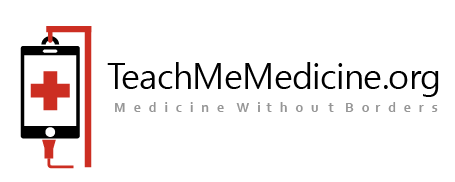Utilizing AI in Medicine
ChatGPT or Google Bard can assist in various aspects of symptom evaluation, causes of musculoskeletal pain evaluation, medical case evaluation, medical indications, and medical monitoring. Here’s an expanded explanation of how AI can be helpful in these areas:
- Symptom Evaluation: AI algorithms can analyze reported symptoms and medical information to assist in evaluating and understanding a patient’s condition. By comparing symptoms with a vast amount of medical data and known patterns, AI can suggest potential diagnoses or narrow down the list of possible conditions. This can aid both patients and healthcare professionals in understanding the underlying causes of symptoms and guide further investigation or treatment.
- Causes of Musculoskeletal Pain Evaluation: AI can help evaluate the causes of musculoskeletal pain by analyzing various factors such as symptom descriptions, medical history, imaging data (such as X-rays or MRI scans), and relevant clinical guidelines. AI algorithms can identify patterns and indicators that may contribute to musculoskeletal pain, such as fractures, osteoarthritis, muscle strains, or nerve-related issues. This can assist healthcare professionals in diagnosing the underlying cause and developing appropriate treatment plans.
- Medical Case Evaluation: AI can assist in evaluating complex medical cases by analyzing patient data, medical records, and relevant literature. AI algorithms can review and extract relevant information from medical documents, identify key clinical factors, and provide summaries or insights to support medical case evaluations. This can save time for healthcare professionals and provide a comprehensive understanding of the patient’s condition.
- Medical Indications: AI algorithms can analyze medical data, including symptoms, laboratory results, genetic information, medical imaging, and electronic health records, to identify indications or markers that may suggest certain medical conditions. By considering multiple data points, AI can help healthcare professionals in making accurate diagnoses and developing tailored treatment plans based on the patient’s specific indications.
- Medical Monitoring: AI can play a role in continuous medical monitoring by analyzing real-time data from wearable devices, remote monitoring systems, or electronic health records. AI algorithms can detect patterns, anomalies, or changes in vital signs, medication adherence, or disease progression and provide alerts or recommendations to healthcare professionals or patients. This can enable proactive intervention, personalized care, and remote patient monitoring for better management of medical conditions.
Utilizing AI in Medicine: Symptom Evaluation
Utilizing AI in Medicine: Symptom Evaluation
To ensure accurate assessments and appropriate recommendations when seeking assistance from ChatGPT or Google Bard to diagnose specific symptoms, it is vital to provide comprehensive and specific medical information.
Utilizing AI in Medicine: Musculoskeletal Evaluation
Utilizing AI in Medicine: Musculoskeletal Evaluation
For accurate diagnosis of Musculoskeletal problems using ChatGPT or Google Bard, it is crucial to provide detailed and specific medical information. This ensures a comprehensive evaluation and enables the AI to provide appropriate recommendations.
Utilizing AI in Medicine: Case Evaluation
Utilizing AI in Medicine: Case Evaluation
When consulting ChatGPT or Google Bard for medical case evaluation, it is imperative to provide thorough and specific medical information, including imaging and laboratory studies. This enables the AI to conduct a precise assessment and offer suitable recommendations.
Utilizing AI in Medicine: Medical Indications
Utilizing AI in Medicine: Medical Indications
Patients frequently desire additional information regarding the necessity, indications, risks, and benefits of medical procedures or surgeries that have been recommended to them. AI can offer valuable insights by providing a comprehensive list of indications for each specific procedure.
By leveraging AI technology, patients can gain a deeper understanding of why a particular procedure is recommended, the specific conditions or situations in which it is indicated, and the potential risks and benefits associated with it. This information empowers patients to make informed decisions about their healthcare, ensuring they have a clear understanding of the medical procedure and its implications.
Utilizing AI in Medicine: Treatment Monitoring
Utilizing AI in Medicine: Treatment Monitoring
By utilizing AI technology, you can access comprehensive insights into the specific monitoring requirements for each medication. This includes understanding the recommended frequency of monitoring, laboratory tests, or other assessments that may be necessary to ensure the safe and effective use of the medication. Furthermore, AI can help identify potential interactions between medications, enabling healthcare providers to make informed decisions and adjust treatment plans as needed to mitigate risks.
With the assistance of AI, patients and healthcare professionals can proactively manage medication-related risks by staying informed about monitoring protocols and potential interactions. This empowers individuals to optimize medication safety and achieve the best possible outcomes.
